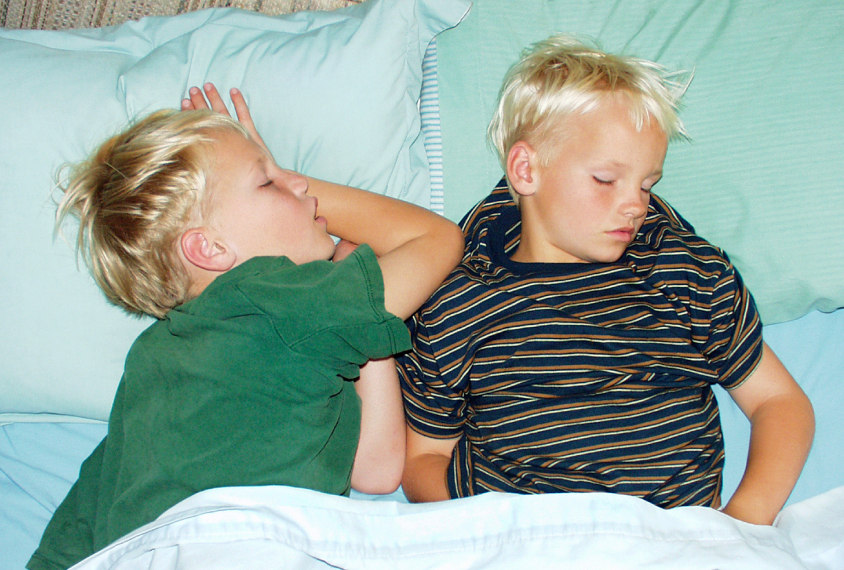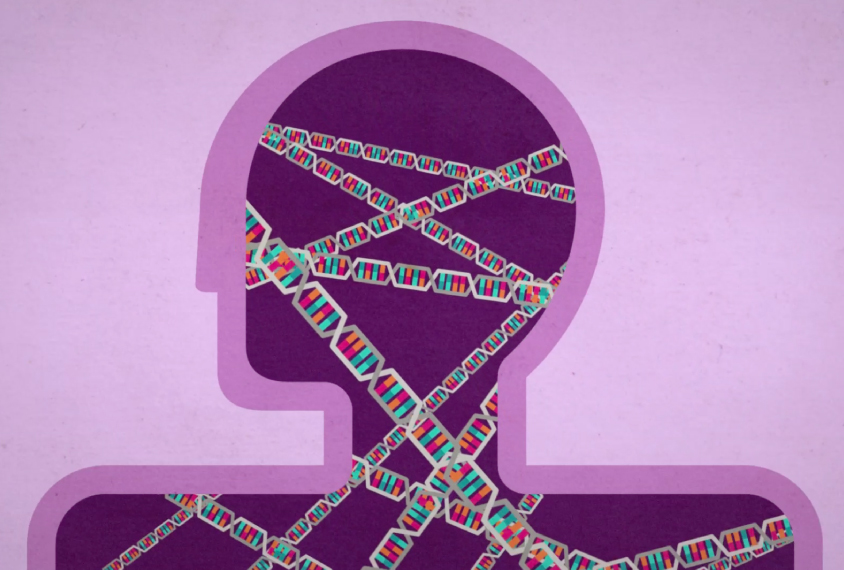Twins
Recent articles
Remembering child psychiatrist Michael Rutter
Sir Michael Rutter, widely hailed as the ‘father of child psychiatry,’ was part of the team that first showed autism has a genetic component. He died 23 October at age 88.

Remembering child psychiatrist Michael Rutter
Sir Michael Rutter, widely hailed as the ‘father of child psychiatry,’ was part of the team that first showed autism has a genetic component. He died 23 October at age 88.
Genetic roots of sleep issues, autism may be entwined
The same genetic factors may underlie both autism and autistic people's tendency to have sleep problems, such as insomnia.

Genetic roots of sleep issues, autism may be entwined
The same genetic factors may underlie both autism and autistic people's tendency to have sleep problems, such as insomnia.
Q&A with John Constantino: Solving the biomarker conundrum
Biological factors that reflect autism’s roots may differ from those that influence how severe the condition is. Failure to make a distinction has stymied the search for biomarkers.

Q&A with John Constantino: Solving the biomarker conundrum
Biological factors that reflect autism’s roots may differ from those that influence how severe the condition is. Failure to make a distinction has stymied the search for biomarkers.
Autism genetics, explained
The more scientists dig into DNA, the more intricate its contribution to autism seems to be. Here, we unravel the complex genetics of autism.

Autism genetics, explained
The more scientists dig into DNA, the more intricate its contribution to autism seems to be. Here, we unravel the complex genetics of autism.
Childhood autism traits linked to hypomania in adolescence
Children with autism traits tend to show agitation, excitability, decreased sleep and other mild signs of mania in adolescence; the association is higher in identical twins than fraternal twins, suggesting that genetics plays a role.

Childhood autism traits linked to hypomania in adolescence
Children with autism traits tend to show agitation, excitability, decreased sleep and other mild signs of mania in adolescence; the association is higher in identical twins than fraternal twins, suggesting that genetics plays a role.
Genes drive autistic people’s reactivity to environmental cues
Genes influence how autistic people react to sights, sounds and other sensory cues, whereas environmental factors shape their tendency to notice and seek out such stimuli, a new study in twins suggests.

Genes drive autistic people’s reactivity to environmental cues
Genes influence how autistic people react to sights, sounds and other sensory cues, whereas environmental factors shape their tendency to notice and seek out such stimuli, a new study in twins suggests.
Environment may have outsized effect on brain structure in autism
Environmental factors influence brain structure in autistic children more than in non-autistic children, according to an analysis of imaging data from twins.

Environment may have outsized effect on brain structure in autism
Environmental factors influence brain structure in autistic children more than in non-autistic children, according to an analysis of imaging data from twins.
Genes’ influence on social behaviors shifts with age
Some social behaviors associated with autism are heritable, but the extent to which genes and the environment influence these behaviors changes as a child grows.

Genes’ influence on social behaviors shifts with age
Some social behaviors associated with autism are heritable, but the extent to which genes and the environment influence these behaviors changes as a child grows.
Environmental factors unlikely to account for rise in autism prevalence
The relative contributions of genetic and environmental factors to autism have held steady over multiple decades, according to a large twin study.

Environmental factors unlikely to account for rise in autism prevalence
The relative contributions of genetic and environmental factors to autism have held steady over multiple decades, according to a large twin study.
Autistic people have increased incidence of neurological problems
People with autism have more brain-related health problems, such as headaches and epilepsy, than typical people do.

Autistic people have increased incidence of neurological problems
People with autism have more brain-related health problems, such as headaches and epilepsy, than typical people do.
Explore more from The Transmitter
Five things to know if your federal grant is terminated
If you want to appeal the decision, know the rules that govern terminations, as well as the specific rationale given in your notice, science policy experts say.

Five things to know if your federal grant is terminated
If you want to appeal the decision, know the rules that govern terminations, as well as the specific rationale given in your notice, science policy experts say.
It’s time to examine neural coding from the message’s point of view
In studying the brain, we almost always take the neuron’s perspective. But we can gain new insights by reorienting our frame of reference to that of the messages flowing over brain networks.
It’s time to examine neural coding from the message’s point of view
In studying the brain, we almost always take the neuron’s perspective. But we can gain new insights by reorienting our frame of reference to that of the messages flowing over brain networks.
Autism traits, mental health conditions interact in sex-dependent ways in early development
Here is a roundup of autism-related news and research spotted around the web for the week of 31 March.

Autism traits, mental health conditions interact in sex-dependent ways in early development
Here is a roundup of autism-related news and research spotted around the web for the week of 31 March.